As you may have heard already, most of the products we use every day contain a myriad of toxins and chemicals that can harm our health. In this post I’ll tell you the main strategies to reduce your exposure to toxins found in your house, personal products, and foods, and live a healthier life.
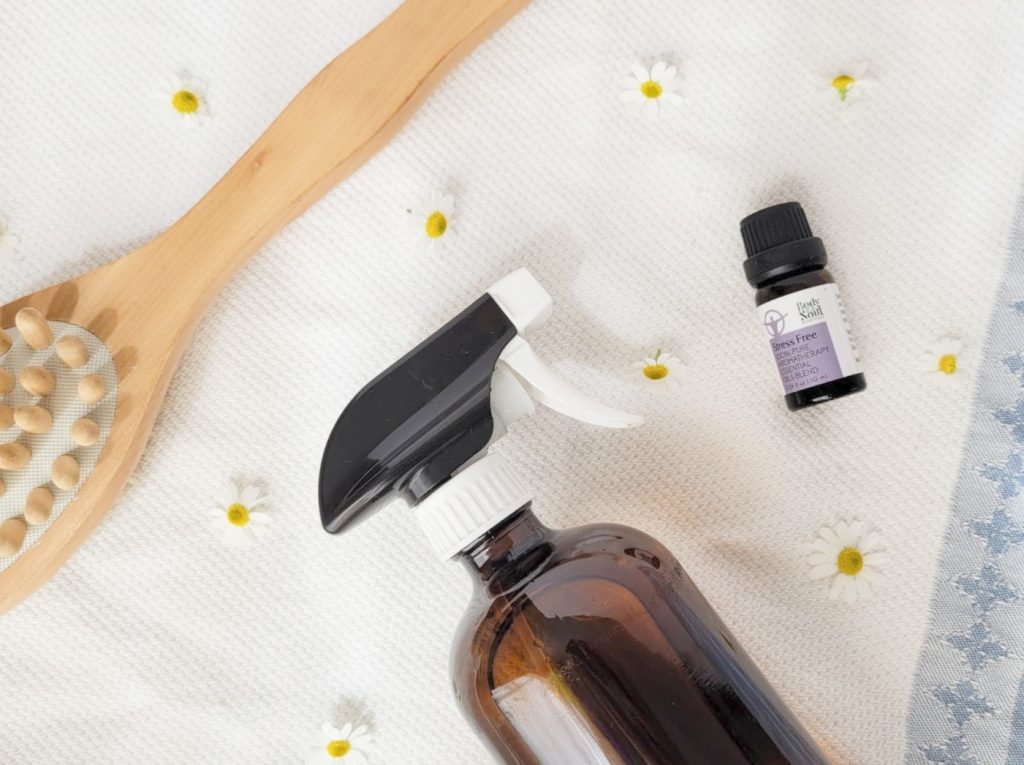
This post contains affiliate links, which means I make a small commission at no extra cost to you. See my full disclosure here.
One of the key steps to improve your health and well-being is living in a healthier environment and reduce your exposure to toxins.
Exposure to these toxins can increase symptoms from headaches to fatigue and respiratory illness. More serious risks include metabolic diseases, chronic illness, cancer, fertility issues and birth defects.
For a healthy lifestyle, and even more importantly if you are trying to conceive, pregnant, or have children in the house, you should avoid or minimize exposure to these chemicals as much as possible!
From furnishing, cleaning products and kitchen utensils to beauty and self-care products, environmental pollutants, water, and even pets, the sources of toxins are numerous.
But the good news is I have some (easy) tips to minimize your exposure to chemicals and toxins. Let’s dive in and see how you can reduce your exposure to the most common and dangerous toxins.
1. Reduce toxins in your house
Reduce your exposure to toxins from home products by following these steps:
- Avoid plastic products, especially in the kitchen: use glass storage containers, ceramic dinnerware, stainless steel water bottles
- Avoid toxic cookware, such as non-stick pans: choose cast-iron, stainless steel (including my beloved Instant Pot), glass or ceramic cookware
- Avoid all artificial fragrances such as artificial candles and air fresheners, but also fragrances in cleaning products. Use essential oils instead (but make sure to follow safety rules especially around small children and pets)
- Use natural cleaning products for cleaning surfaces, doing dishes and laundry: I clean my entire house with just white vinegar, baking soda and castile soap! Use a steam mop for your floors.
- Chose natural and preferably organic textiles such as beddings, towels, and pillows and avoid synthetic fibers such as polyester and textiles with flame retardants
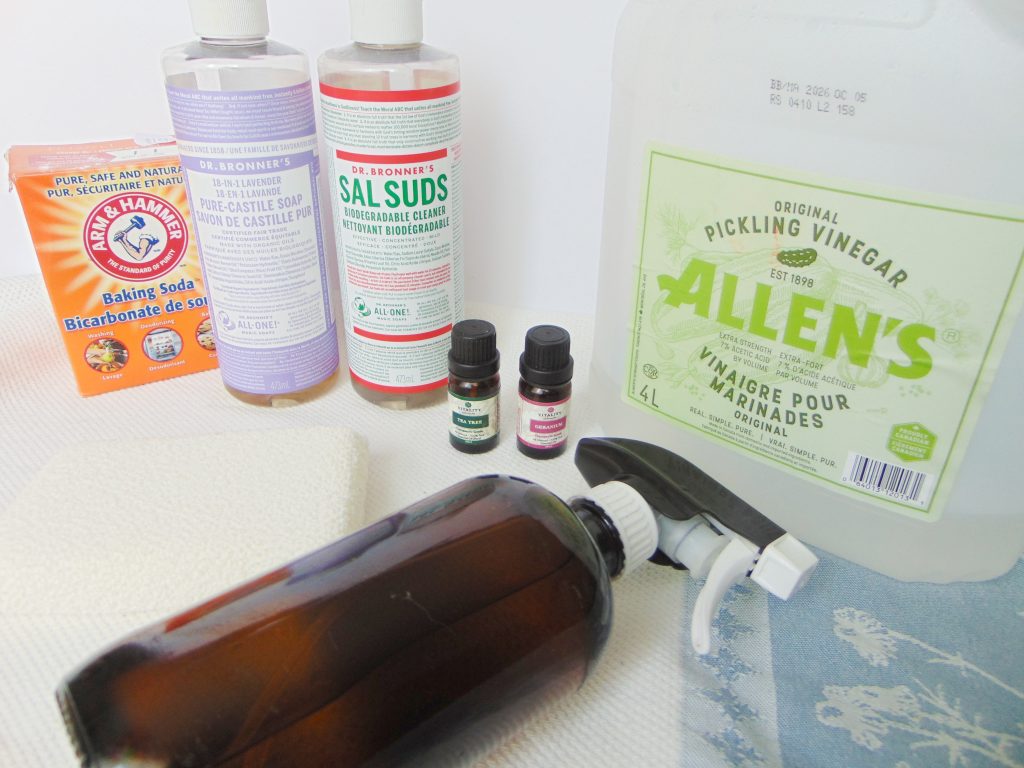
2. Reduce toxins in your personal products
Reduce your exposure to toxins found in many personal products by following these steps:
- Choose natural products for hygiene, skin and hair care, and make-up. Always read the ingredient list, avoiding the most harmful ingredients (watch out for: parabens, triclosan, phthalates, sodium laurite sulfate, artificial fragrances, propylene glycol, formaldehyde, mineral oil). I love Dr. Bronner’s castile soap as a family hand, body, and hair detergent and I like using simple ingredients such as rose water, organic shea or cocoa butter, coconut oil, and tallow to keep my skin healthy and moisturized.
- Choose fluoride-free toothpaste (I love Dr. Bronner’s toothpaste) and aluminum-free deodorants (Native is a good option)
- Avoid artificial supplements (the only supplement I recommend is Vit D during the winter months) and don’t abuse over-the-counter medications (unless prescribed by a doctor)
- Avoid or reduce the use of hand sanitizers: wash your hands with natural soap and water instead!
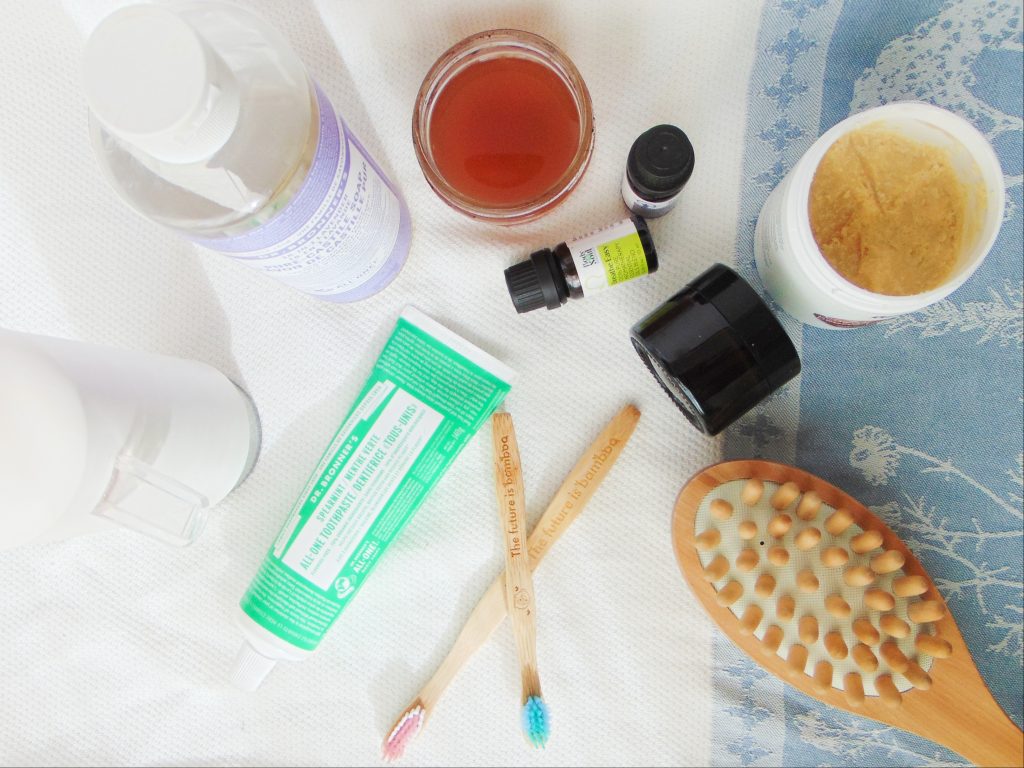
3. Improve your home’s indoor air quality
Poor indoor air quality is a very common source of toxin exposure and health issues. Spend more time outdoors and improve your home’s air quality by following these simple steps:
- Keep your house clean by dusting and vacuuming often. Invest in a vacuum with HEPA filter, especially if you have pets (we have been loving our Nequare stick vacuum as a budget-friendly option). Minimize carpets, rugs, and upholstery and cleam them regularly as they tend to trap dust and allergens
- Open your windows often and let the air exchange and keep your interior doors open
- Use bathroom and kitchen fans when showering and cooking
- If you have pets, live in a polluted area and/or have allergies, invest in an air purifier (this is the one we have) or install a house filtration system
- When possible, choose furnishing, upholstery and paint that are low in VOCs (Volatile Organic Compounds). Prefer natural materials (solid, untreated wood, natural fabrics), and/or buy second-hand furniture that have stopped off-gassing. Find some ideas for non-toxic bedroom products here.
- Avoid smoking and exposure to passive smoke
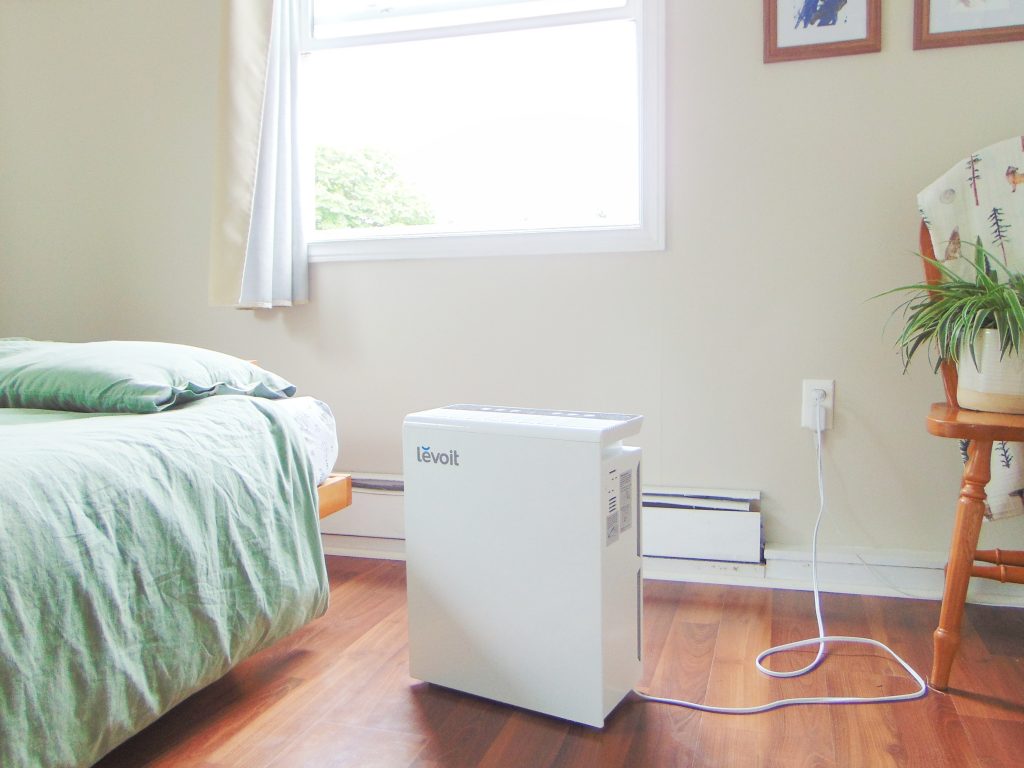
4. Minimize toxins in foods and drinks
Another common and underrated source of toxins are foods and drinks. From additives to pesticides, hormones, and antibiotics, you can reduce the toxins you ingest by following these tips:
- Avoid processed foods that contain additives (such as artificial colours, flavours, and preservatives)
- Choose organic fruit and vegetables when possible, especially for those foods that are most heavily sprayed (including strawberries, cherries, grapes, apples, pears, peaches, nectarines, leafy greens, peppers, tomatoes, celery). Growing your own organic produce is always the best choice!
- Choose good quality grass-fed, pasture raised meat from animals not treated with antibiotics and hormones (buy local!)
- Choose good quality eggs (from pastured chickens is best) and dairy products (organic, raw, grass-fed is best)
- Don’t drink tap water that has chlorine and/or fluoride added (invest in a good water filter such as the Berkey water filter system)
- Avoid consuming alcohol and excess caffeine and brew your own coffee using organic coffee beans as much as possible
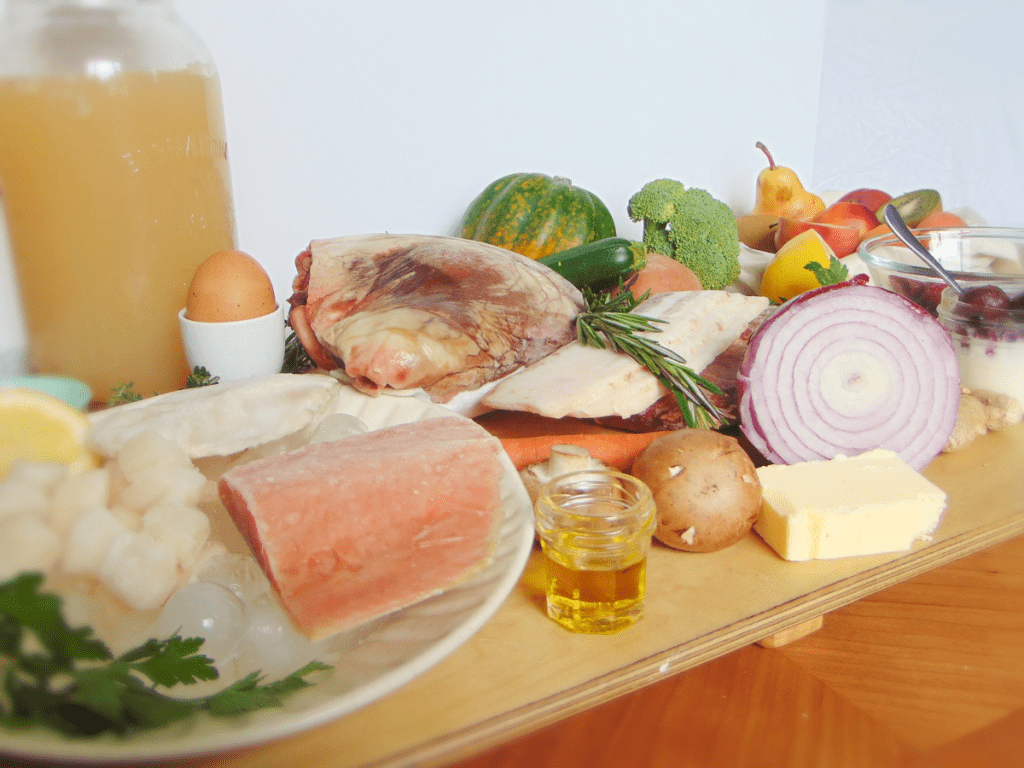
5. Don’t let greenwashing fool you
Finally, when shopping for your house, personal products or foods, don’t let greenwashing fool you! Greenwashing refers to a deceptive form of marketing and/or advertising that make customers believe a company or product is “green” (aka healthier and/or environmental friendly), when it’s actually not.
Greenwashed products are often labeled with meaningless terms such as “all-natural”, “eco-friendly”, “non-toxic”, “plant-based”, “farm-fresh”. Another common example is eggs labeled as “cage-free” (the chickens are not in cages but in very crowded pens).
Other marketing greenwashing strategies include “green” packaging, such as using natural colors and materials for packaging and logos, as well as using catchy “green” mottos.
How can you avoid greenwashing and actually buy products that are natural, toxin-free, and more eco-friendly? Simply by carefully reading the labels and paying attention to the list of ingredients and the products’ certifications. Make yourself familiar with the most common ingredients to avoid in house and personal products and foods, and the proper certifications and terminologies that you should aim for (such as USDA organic, NON GMO Project Verified, Fair Trade Certified). Always research products before buying!
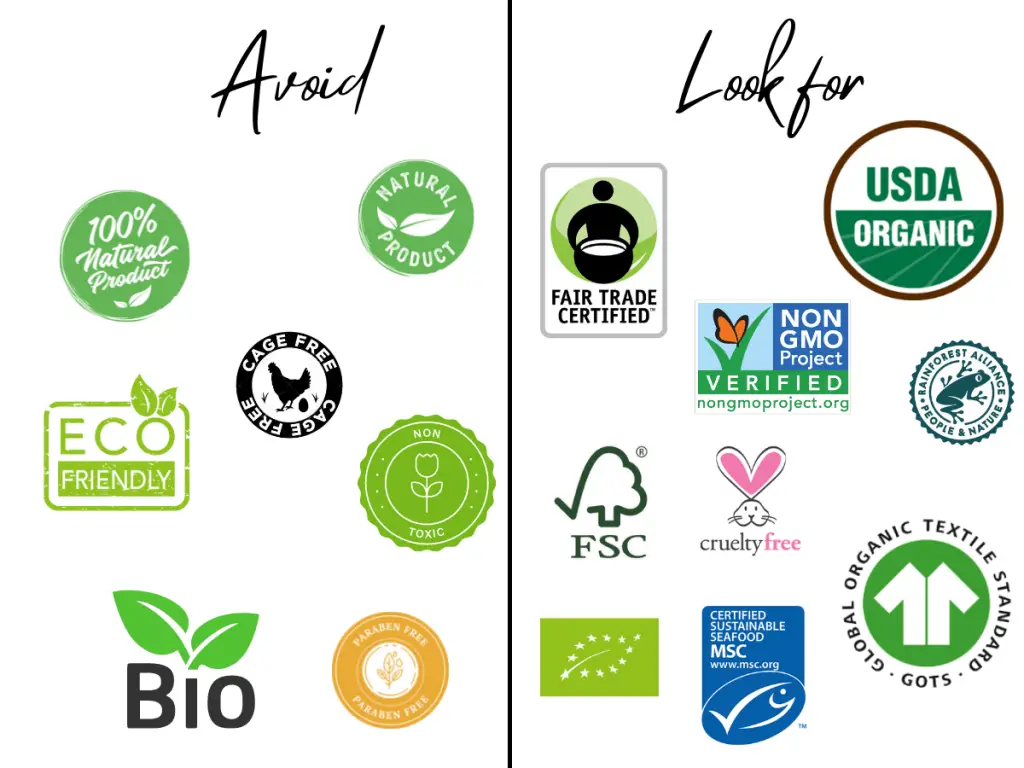
Shop my favorite “clean” products
Lodge 10-1/4-Inch Pre-Seasoned Cast Iron Skillet
Instant Pot Duo 7-in-1 Electric Pressure Cooker
Dr. Bronner’s Pure Castile Liquid Soap
Dr. Bronner’s fluoride-free toothpaste
Native aluminium-free deodorant
Nequare stick vacuum with HEPA filter
Related posts
5 Steps to Optimal Health: How to Improve your Well-being Naturally
Spending Time Outdoors: All the Health Benefits
Rose Water: DIY Recipe, Benefits, and Uses
Cute and Cozy Minimalist Kid’s Bedroom on a Budget
More on natural health
Why your Gut Health is Important and How to Improve it Naturally
Collagen and Gelatin: Health Benefits and how to Eat More
The Benefits of a Grain-free Diet and What to Eat
10 (Fun) Ways to Exercise More Without Working Out
Organ Meats: List, Health Benefits, and How to Eat More
Chamomile: How to Grow, Harvest, and Use this Beneficial Flower
Pin it for later
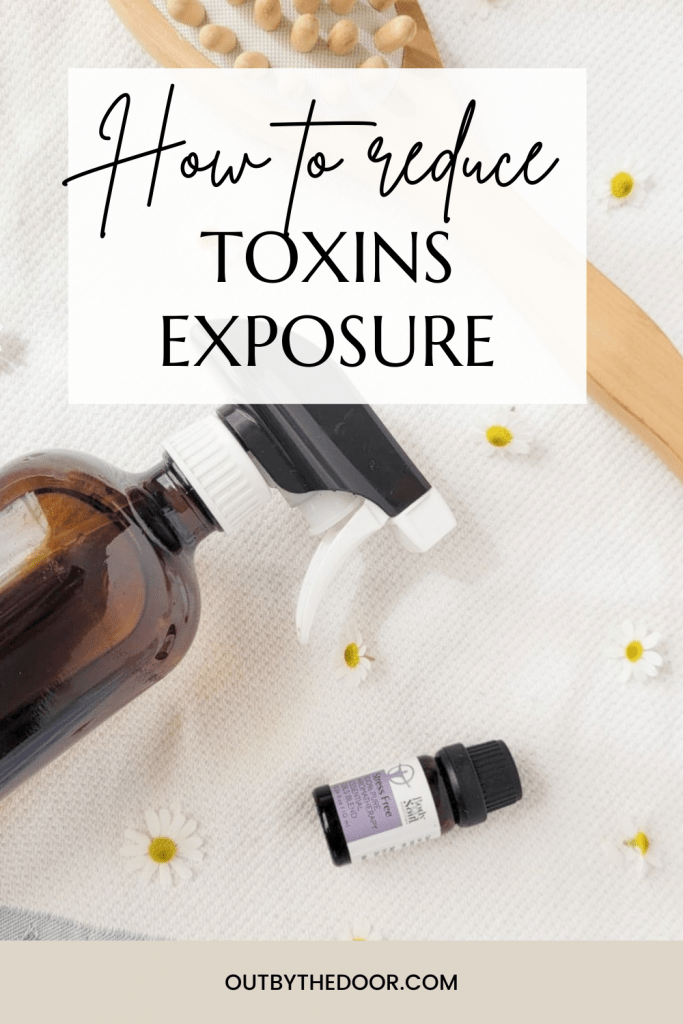
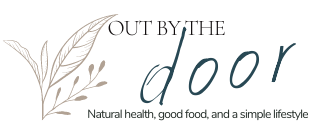

These are all such great tips & so important for our health. Thank you for sharing 🙂
Great suggestions! There are so many areas in our lives that we don’t realize we’re being exposed to harmful toxins. I’ve recently been switching my beauty & hygiene products slowly but surely.
Such great tips! I love the break down of different areas in our lives! Thank you!
These are all great tips and all things I am striving to get better at daily! Thanks for the reminder.